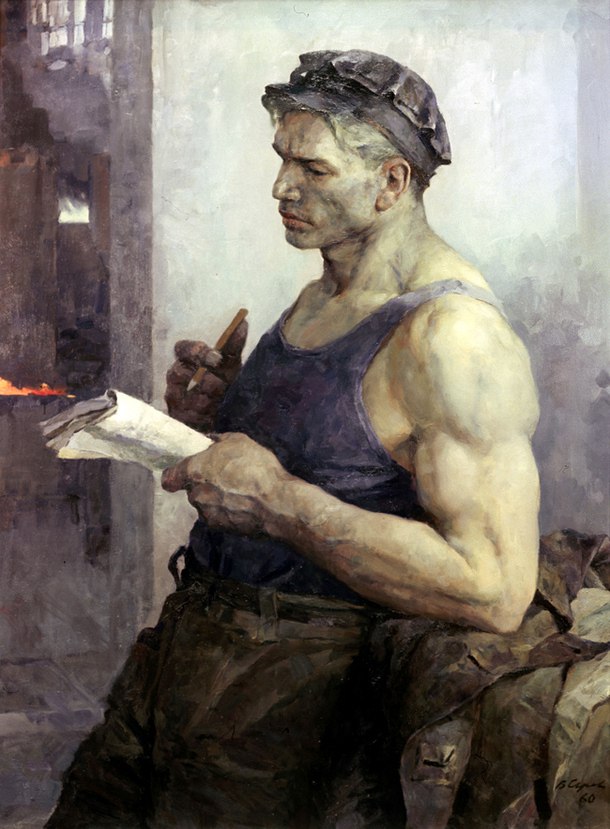- cross-posted to:
- memes@lemmy.ml
- cross-posted to:
- memes@lemmy.ml
Even if you have some minor investment in the stock market, you might still be working class…
Tying retirement to the stock market is insidious class warfare
It really is. This, plus the creation of a large homeowner class, is the most effective thing America has ever done against socialism in the US. Absolutely destroyed class solidarity by fabricating a new “middle class” that somehow everyone is part of. Tying the majority of the population’s life to the imaginary line will make a lot of people fight and die to protect line go up.
“Investment” is millions of dollars. Your paltry 500 hundred dollars in stock isn’t even a rounding error.
Thank you, that’s what I wanted to say. OP’s post doesn’t make this explicitly clear.
agreed, I’d phrase it as if your labour is the primary means of paying your bills
Under the “low-middle-upper” class paradigm, i have yet to meet a person that calls themselves low/upper class. Everyone thinks they’re middle class because there is always someone richer/poorer. These terms fog the real class dynamics.
People get too fixated on the class definitions and delineations. They’re a reduction that’s useful for explaining to baby leftists, but developing a more comprehensive understanding of class analysis is essential.
What are a person’s material interests? Do those material interests influence them to be revolutionary or reactionary? Understanding a person’s material interests, we can determine how to engage with them and how much effort to expend on them.
Attempting to define strict arbitrary lines between classes misses the point. The real world is complex: there’s financial bourgeoisie, industrial bourgeoisie, international and national bourgeoisie, precarious petty bourgeoisie; there’s comfortable labor aristocrats, there’s educated people in managerial positions and academia, there’s people working trades, there’s people working in the service industry, there’s enslaved workers. Of these many may have investments or retirements or social demographic experiences that further influence their material interests. There’s people who own apartment complexes, people who own their home outright, people who have a mortgage, people who are entirely subjected to rent. A working renter/homeowner who sublets a room has a distinct material interest both from their tenant as well as large landlords.
The point is, these are all unique experiences. We don’t group them arbitrarily, we do so in an attempt to unify people (in the real world with action, not just in concept) along common interests. The way certain subclasses move is not deterministic, all sorts of cultural and political and environmental and military and economic variables can push them one way or another.
Furthermore, the creation of class traitors, people working against their primary material interests, is incredibly important. No revolution has happened without class traitors, or people acting on moral grounds rather than materially self-interested ones.
Agreed, but this is moreso adding nuance to class analysis whereas the Liberals attempt to negate it entirely and say that class analysis is entirely useless and outdated. We have to go further into class analysis, get more details, information and more sophistication - where the Liberal wants us to abandon the lens entirely
Yeah, they either obfuscate, co-opt, ignore, or reject.
Which, given some changes in material conditions, could give materialists a leg up in analyzing and interacting with the world as it is, rather than an abstract, fetishized morass of discordant concepts.
While there’s obviously a lot of nuance past the basic class definition. I do think that it’s an incredibly useful starting point for any analysis. Looking at whether a person’s primary source of income comes from their labour or from capital they own helps understand where their interests lie. I completely agree that one should not use reductive analysis here, but it’s a good starting point, and it’s the basis for class contradictions within the capitalist society.
Absolutely, it’s class analysis 101. Not wrong per se, just not the whole picture. But a good starting point.
The middle panel up top has baggage. Maybe it goes without saying, but even people with sizeable investments profit or exist at the whims of capitalism. More than 1 ghoulish landlord lost most of their hoarded wealth during the housing crisis, and plenty of “small business” owners can see themselves muscled out if larger capitalist set their eyes on a market and bribing (buying out) is off the table. Every petite bourgeoisie is always one manufactured capitalist crisis away from losing their artificially granted “class”.
They will probably not come around but it’s worth reminding them to take the wind out of their sails. Maybe they’ll be materially worse off under a Marxist system right now, but there is value in living in a society where you will not be abandoned by society or go hungry, nor have to see others suffer that way.
I went off topic but I think that “no other investments” line is too open to wrong interpretations.
If you consider how value created by labour globally is distributed, you’ll see that all the Western workers are labour aristocracy, which together with petty bourgeoisie forms the so-called middle class (not exactly a Marxist term)






